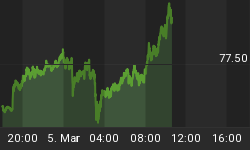It's common knowledge that the Federal Reserve has pledged to stop buying mortgage-backed securities at the end of March 2010.
I believe the Federal Reserve will attempt this plan for some timed period (3-12 months), and learn very quickly its detrimental affects. Personally, I wish they would get out the market completely, but such a notion is unlikely and naive based on past actions of the government.
Below is a chart of mortgage-backed securities held by the Federal Reserve, which reflects nothing short of an explosion or "bubble" in the ownership of these securities.

Providing this much supply of money to the mortgage market has helped keep mortgages rates low, and stimulated an increase in the real estate purchase activity in 2009, especially in the low end of the real estate market. It didn't however, have much impact on real estate values, which is an interesting note by itself. At best, in some markets we've seen a dead cat bounce.
If the Federal Reserve actually implements this policy, taking away the supply of money will increase its cost, which is the interest rate on mortgage loans. A push higher in mortgage rates is "NOT" priced into real estate values, and thus higher rates is expected to compress real estate values right at the very time commercial real estate is declining in size, and the banks have a load of REOs to release to the markets.
The Treasury Department said it would provided unlimited support to Fannie and Freddie, and would not force them to sell securities they hold. I guess that statement was released in the attempts to reduce the negative perception associated with the Federal Reserve not buying mortgage-backed securities. But that won't change the supply-demand equation for the cost of money in the mortgage market.
Below is a chart of the 10 year Treasury yield. The 10 yield looks like it's making a bullish cup and handle pattern, and with a break above 4%, the target yield is 4.9%. The Point and Figure chart (not shown) of the 10 year yield reflects a target of 5.4%. So just maybe, the bond market is confirming the view of higher mortgage rates, should the cup and handle pattern play out as expected.

Where the rubber meets the road in this circus of government insanity is what happens if rates go higher and there's a lack of mortgage funding? Logically, we should expect much slower real estate sales volume, lower real estate values, which in turn intensifies bank losses, increases the number of folks upside down, and displaces the ability of contractors to build a cost affective house compared to market values.
None of that is economically positive. Should it happen? Absolutely! We need to get the government out of our business for long term health. However, politicians being the diminished intellectual creatures that they are desperate for re-election will most likely demand the re-establishment of support for Fannie and Freddie in some form. And maybe, as part of their re-election campaign later this year.
The government only sees one solution for every problem we face, 'a combination of lower rates and flooding the system with more money". Stupid is as stupid does, and that's my expectation of how it plays out.
Hope all is well.
















